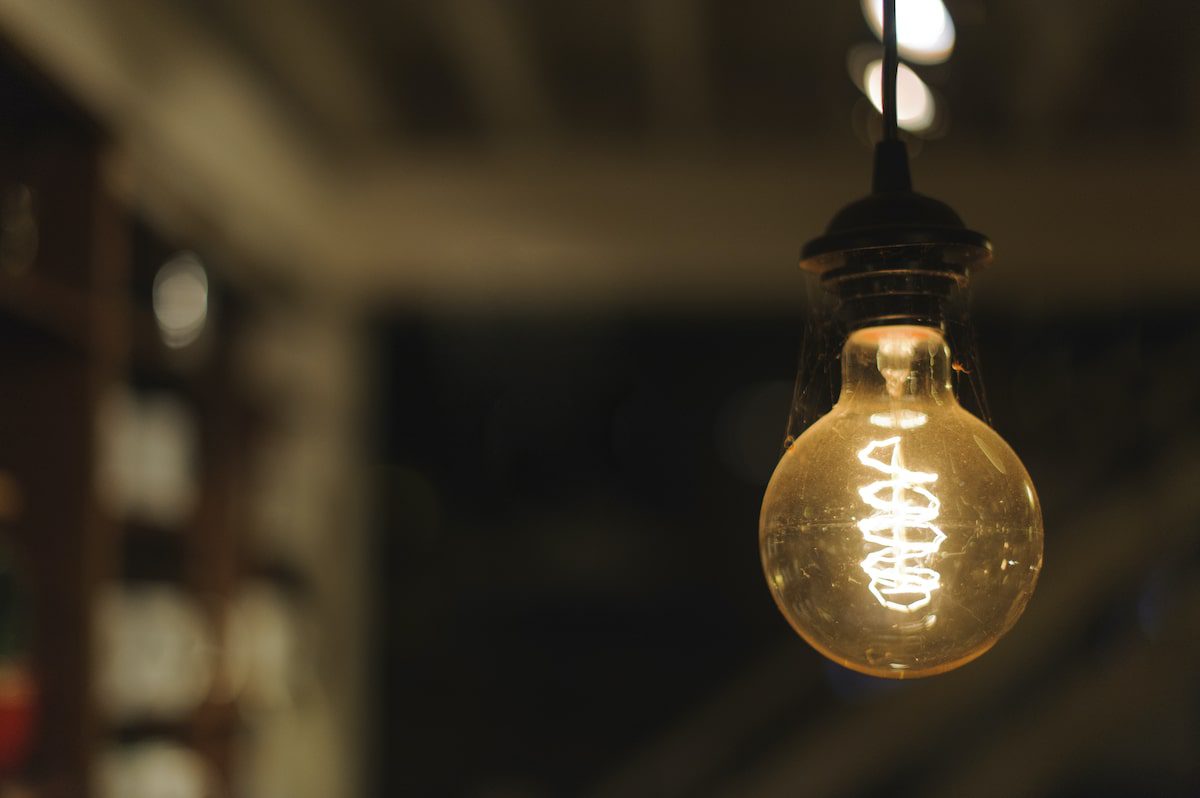Why Are My Lights Flickering and How Do I Fix Them?
Even if you're only renting a home, it's guaranteed you'll encounter small problems that need fixing. From plumbing to wiring to almost anything between, don't be surprised when something isn't functioning right. This is most true when it comes to your lights.

There's a definite difference between an occasional light flicker and an actual flickering lights issue. If you notice a random bulb misbehaving once in a blue moon, leave it alone. That's normal for any house. If that flicker becomes more regular, you've got a problem to address.
What do flickering lights mean?
Luckily, flickering lights are most often the result of a minor issue. In fact, assume it's a minor issue and try to associate the cause to one of these options. It will prevent you from jumping into a larger electrical issue that can involve a professional, your landlord and a serious repair. The four most common reasons you've got a moody light are:
- The bulb itself. Either it's not screwed in tight or it's the wrong wattage.
- The light plug is loose. Make sure the plug hasn't slipped, even a little, from the outlet. To work, it needs to get plugged firmly into the wall socket.
- The light switch is faulty. You can tell this by wiggling the switch with the light on to see if that triggers the flicker. If it does, you need a new switch.
- A specific appliance. If your flicker only happens when you turn on a certain appliance, it's the culprit. You've got an overloaded circuit, and the appliance is using more energy than the circuit can handle. If it happens infrequently, it's OK to ignore it since not all electrical systems are perfect. If it happens all the time, reach out to your landlord. It's an issue for an electrician.
Are flickering lights dangerous?
If you're able to attribute the cause of your flickering lights to a minor issue, things aren't serious. Repairs or adjustments are easy to make yourself. It's often as simple as getting a new bulb or pushing a loose plug back into the socket.
If the problem seems linked to a bigger electrical issue, it's important to have a professional electrician come out and evaluate the situation. Issues like loose wiring or connection or fuse problems can become a fire hazard. In fact, “loose wiring is one of the major causes of in home fires," according to Molly Price from CNET.
Bigger issues can damage lighting, appliances and increase your risk of an electrical fire. When in doubt, always call in a professional to check things out and make a proper assessment of the issue.
How do I stop my lights from flickering?
The best tip when dealing with flickering light bulbs is to keep it simple. Go to the most obvious fixes first to get things back to normal. First, tighten everything. Make sure you screw your bulbs in all the way and check that plugs are firmly in the walls.
If that doesn't stop the issue, replace what you can next. Check the wattage of your flickering bulb and replace it with something more energy-efficient at a lower wattage. If you have an outdated light switch, try replacing it. If the culprit is an old lamp, invest in a new one.
If the flickering is still happening after all that, consider asking your landlord to hire an electrician to make an evaluation and recommend a repair.
Keeping the lights on
In theory, the biggest issue with your flickering lights is how much it annoys you. Keep track of how often it happens though. If it's a regular thing, begin evaluating what the source is for the problem.
If it's a minor issue, you're safe to take care of things yourself, but since electrical problems can lead to fires, call in a professional for anything serious. Hopefully, with some basic attention, your lighting will be back to normal in no time.
